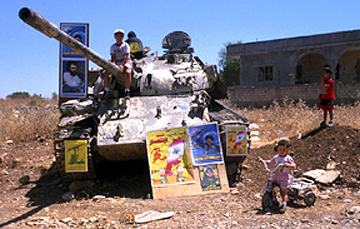|
|
|
NGOs Urge Security Council to End Iraqi Sanctions A coalition of six US and international non-governmental organisations (NGOs) has renewed a call to end a devastating 10-year-old economic embargo which has caused death and destruction in Iraq. The coalition - which includes Human Rights Watch, Save the Children, the Global Policy Forum and the Quaker United Nations Office - is urging the Security Council to address 'the grave humanitarian consequences' of the sanctions it imposed on Iraq. 'The Security Council must recognise that the sanctions have contributed in a major way to persistent life-threatening conditions, and that short-term emergency assistance is no longer appropriate to the scale of this crisis,' says a letter sent to the 15 members of the Council. The sanctions on Iraq, which were imposed by the Security Council in August 1990, followed the Iraqi invasion of neighbouring Kuwait. Since then, several UN bodies and international human rights organisations have pointed out that hundreds and thousands of women and children have either died or are dying for want of food, drugs or medical care. The letter said that UN bodies, including the Security Council, have called for 'targeted sanctions' in the future that would minimise the impact on civilians. These recommendations should be applied without further delay to the case of Iraq, the letter notes. In his report to the upcoming Millennium Summit in early September, UN Secretary-General Kofi Annan has said that under UN-targeted sanctions, 'it is usually the people who suffer, not the political elite whose behaviour triggered the sanctions in the first place.' Pointing out that sanctions have had an 'uneven track record' in inducing compliance with Security Council resolutions, Annan said that economic sanctions have proved to be 'a blunt and even counter-productive instrument. 'The steps the Council has taken to date do not come to grips with the fundamental problem,' says Hanny Megally, executive director of the Middle East and North Africa division of Human Rights Watch. Sanctions intended to block the government's access to foreign exchange have contributed to pervasive life-threatening public health conditions for millions of innocent people, the letter said. In May 1996, the Security Council agreed to permit limited sales of oil to relieve the humanitarian sufferings of sanctions-stricken Iraqis, specifically women and children. Under what was called an 'oil-for-food' deal, Iraq was originally allowed to sell about $2 billion worth of oil every six months. Subsequently the quota was doubled. But the letter to Council members said that the 'emergency commodity assistance programme like Oil-for-Food, no matter how well funded or well run, cannot reverse the devastating consequences of war and then 10 years of virtual shut-down of Iraq's economy.' All efforts to lift sanctions, however, have been consistently blocked by two of the five veto-wielding permanent members of the Security Council - the United States and Britain. The other three, namely France, China and Russia, have been more inclined towards lifting sanctions. Both Britain and the United States have said they will agree to any lifting of sanctions only when they are convinced that Iraq has eliminated all its weapons of mass destruction - nuclear, chemical and biological - and the future capacity to produce them. 'The Iraqi government bears a large share of the blame for the crisis,' Megally says, 'but in seeking to compel Iraq's compliance on disarmament matters, the Council should devise means which directly impact those in power, not the ordinary citizens who already suffer under their repression.' The letter also said that the 'deterioration in Iraq's civilian infrastructure is so far-reaching that it can only be reversed with extensive investment and development efforts'. In a report submitted to the Council in July, Annan stressed the need to protect children from the impact of sanctions, in general. But he also specifically referred to the 'suffering of Iraqi children' caught up in UN sanctions. The coalition said: 'We call upon Security Council member states in the strongest terms to take the further steps that are necessary to protect and advance these fundamental rights of civilians, and to address forthrightly the unacceptable discrepancy between the emerging general principles of sanctions policy and the application of sanctions in the case of Iraq.' In an editorial on 7 August titled 'Rethinking Iraqi sanctions', the London Financial Times said that although the sanctions have succeeded in containing Iraqi President Saddam Hussein, the sanctions policy has run out of momentum. The FT said that the pain the sanctions have inflicted on Iraq's 22 million people has eroded support for it in the Arab world and beyond. 'Saddam Hussein must continue to be punished for defying the UN. But it is now worth re-evaluating UN policy and looking for ways of putting pressure on the regime without inflicting more suffering on the Iraqi population,' the FT argued.. . posters with messages that demand jobs and an end to poverty. These foot-soldiers are mobilisi |

